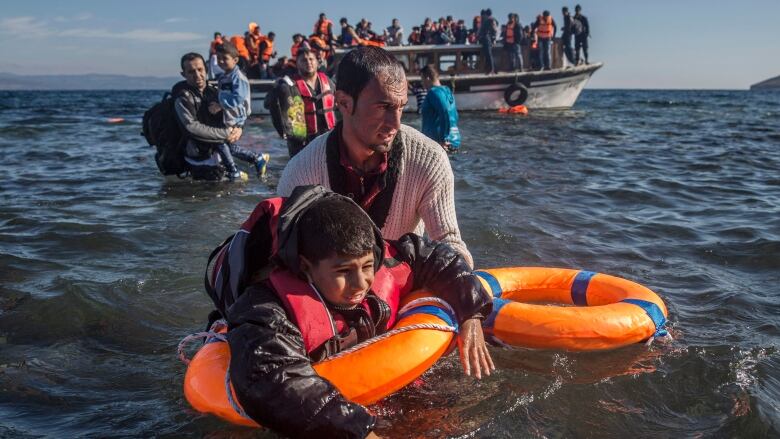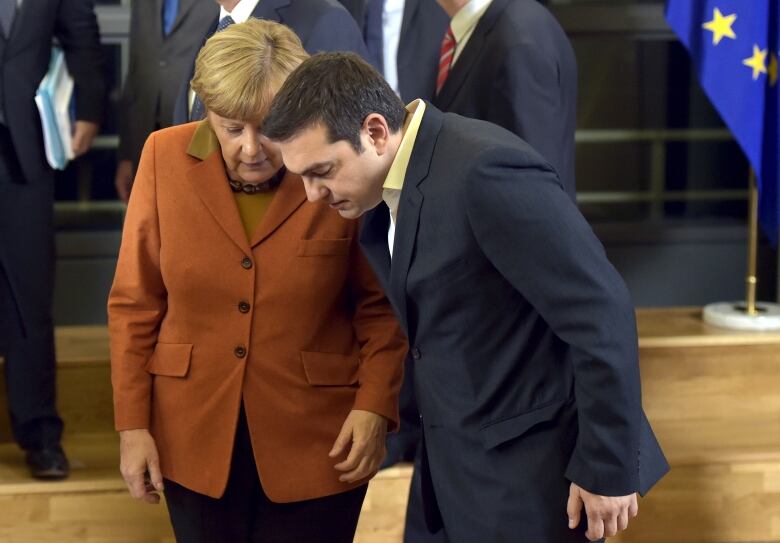Europe refugee crisis: EU wants to fly migrants out of Greece
UN refugee agency said cases of hypothermia showing up as refugees wait in cold

The European Union plans to persuade refugees to wait in Greece for paid flights to other countries offering asylum rather than risk dangerous winter treks through the Balkans, EU officials said on Monday.
Pledging to act fast on agreements by Balkan leaders on Sunday to slow and control the flow of Syrians and others making their way to Germany from Turkey, officials acknowledged people would keep coming and said persuading them to accept orderly relocation arrangements would be vital.
- Refugee crisis: EU, Balkan leaders vow to take in 100,000 more people
- UN accuses Czech Republic of violating human rights of migrants
- European refugee crisis: Migrants trade punches, 1 stabbed as pressure builds at Balkan borders
"The idea is also to convince the Syrian father that it is better to stay in Greece with his family until they can be relocated," one EU official said, noting the difficulties tens of thousands of people face out in the open in the Balkans.
Free flights to safe countries would be a much better option, the official said, than uncertain treks to the north.
Squabblingneighbours
The United Nations refugee agency (UNHCR), which worked with the EU and non-EU states in the region to formulate Sunday's plan stressed the need for immediate action to save lives, though questions remain over how fast resources will be available and how squabbling neighbouring governments will start to cooperate.
"Measures agreed yesterday have to be applied immediately and completely," said UNHCR spokeswoman Carlotta Sami. "We have already had several cases of hypothermia among people waiting in the cold... There is a risk of tragedies due to the weather."
A scene we've seen repeated more than a dozen times in just a few hrs on the Lesvos Coast #CBC pic.twitter.com/reNqLGHKcq
—@EMauroCBCThe agreement foresees places for 100,000 people waiting for asylum claims to be assessed, 50,000 in Greece and 50,000 in Balkan states further north. The EU has promised funds to Greece and the other countries to provide emergency help.
Greece pressured
At the meeting, involving 11 countries and held at the initiative of German Chancellor Angela Merkel, Greek Prime Minister Alexis Tsipras was pressed to do more to document those arriving. The final joint statement said policies of "waving through refugees" toward neighbouring countries must end.

Tsipras himself stressed that the root of the problem lay in Turkey, from where most Syrians and Iraqis, as well as migrants from South Asia, head by sea to nearby Greek islands. The EU is negotiating separately with Turkey to control those flows.
Several diplomats and EU officials said there were signs that Tsipras, who has had rocky relations this year with Berlin and Brussels during negotiations on a euro zone bailout, was stepping up co-operation on the migrant crisis after months in which officials have complained about a perceived lack of will in Athens.
A priority now for Greece will be the provision of some 20,000 new places to house people temporarily by the end of the year, in addition to the existing 10,000, EU officials said. A further 20,000 places should be provided later. The Greek government has resisted setting up camps. EU officials said places could be provided in other ways, such as hotels or private apartments.
Those identified as economic migrants to be returned to their home countries could be kept in secure units, however.












_(720p).jpg)


 OFFICIAL HD MUSIC VIDEO.jpg)
.jpg)



























































































